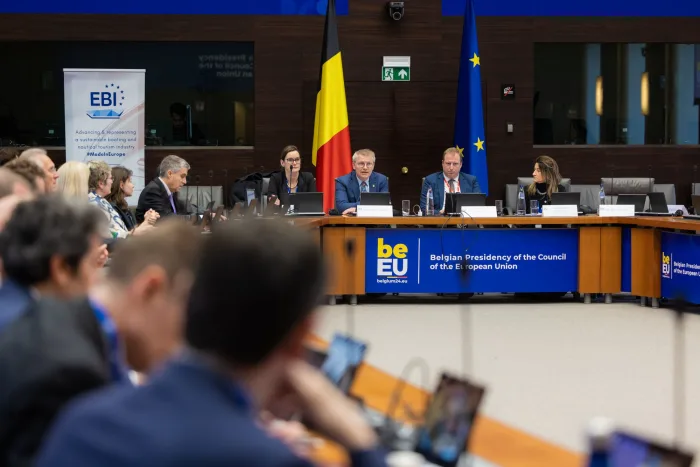A common and coordinated EU approach towards the end-of-life recreational craft, currently lacking in the EU, will support the objectives and ambitions set out in the Circular Economy Action Plan and the European Green Deal, and would be beneficial to all Member States and relevant stakeholders.
That’s why DG MARE partnered with the Belgian Presidency of the Council of the EU and the European Boating Industry to engage in a dialogue with the European stakeholders and policymakers and create momentum for a sustainable and circular future for end-of-life recreational craft. On 18th March 2024, a joint event addressed the current challenges related to the dismantling, proper disposal and waste management of end-of-life recreational craft, including updated information about the Belgian approach (legal study & roadmap), lessons learned and potential common solutions. Delilah Al Khudhairy, Director of Directorate A for Maritime policy and blue economy welcomed the participants alongside the Belgian deputy Prime Minister and Minister of mobility Georges Gilkinet, and Robert Marx, President of the European Boating Industry. DG MARE moderated an interactive panel discussion on the challenges and solutions regarding the disposal and management of end-of-life boats, from the point of view of the industry, users and regulators. Three break-out sessions, focusing on financial, material and stakeholders’ cooperation aspects brought forward interactive and engaged discussions.
Background:
It is estimated that out of 6 million boats in the EU, only around 1-2% are effectively dismantled and recycled, the rest is either stored by their last owners, incinerated, landfilled or abandoned, creating litter and polluting our coastlines and marinas. Most of the recreational boats are made of plastic reinforced glass fiber polymers. The recreational boats produced during the boom in the 1970’s are coming to their end-of life in the coming years according to their average lifespan. However, there is currently no organised way to tackle this problem on a European Union level.
That’ why, in 2018, DG MARE partnered with the European Boating Industry and created a Stakeholders’ group for the end-of-life recreational boats to discuss all relevant issues, from legal and financial aspects, through material, design and sustainability, to technical aspects such as dismantling, recycling, repair. Synergies with other sectors using composites materials such as wind industry and cement co-processing were also addressed.
The main challenges are:
- lack of boat registers for recreational boats in the MS and differences in the registration requirements between MS (starting at a certain length or engine power) and lack of consistent classification of recreational boats in the MS. Therefore, making a precise estimation of the fleet size, types of craft and further indicators such as estimated amounts coming to their end-of-life is difficult;
- there are currently only a few specialised dismantling sites available for recreational boats across Europe;
- there are no commercially viable recycling solutions due to high energy and other costs involved with the final product not able to be sold at profit;
- the limited market size in terms of tonnage of the polymers from recreational boats at the EU level does not represent an opportunity for an industrial sector to invest in recycling solutions – therefore the need to partner with other industries using the same polymers.
Resulting from the work of the Stakeholders’ Group, the European Boating Industry published a Roadmap on the implementation of the circular economy for end-of-life recreational boats. The joint event organised in March 2024 marks a kick-start of the Stakeholders’ Group following the recommendations set out in the Roadmap with work plan to address these at industry, national and EU levels.

